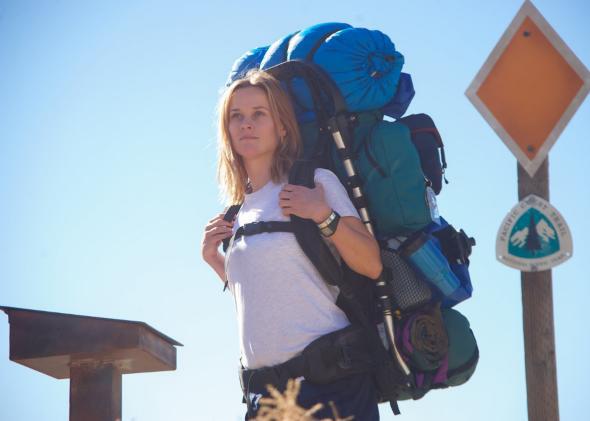When I heard that Nick Hornby and Jean-Marc Vallée had adapted Cheryl Strayed’s memoir Wild for the silver screen, I was thrilled … and concerned. I loved the book for its fierce, offbeat intelligence; the poetic way it superimposed looping memories over a linear plot structure; and yes, for its heart. (Also for the ghost fox, which I coveted.) But I was worried about how a movie would translate Strayed’s voice, which plays in a lofty enough register without orchestral backing or Reese Witherspoon’s huge eyes registering every bump in the road.
But in fact the film is excellent, in large part because it eschews the blunter inclinations of Strayed’s narration and lets other elements—imagery, dialogue, foxes—do the storytelling. Vallée abandons this strategy only once, in a ham-fisted closing scene. Those final few minutes accomplish the Pyrrhic triumph of clarifying what makes the rest of the movie great.
Wild the book is more meditative and at times more stirring than the film—we have longer to spend with Cheryl and her story, which can result in a stronger emotional payoff. Yet that swollen profundity can also backfire. Strayed favors on-the-nose metaphors and loaded, one-sentence paragraphs: I was working too hard to be afraid. It was seared off me by the relentless, magnificent heat. Then, two weeks later, Paul called. You can’t fault an author for harboring deep feelings about her own history—the memoir never feels ungenuine, even in its soggier moments—but Strayed is also addressing an audience that, in this cynical age, has developed very fine and delicate emotional receptors. In its desire to articulate everything, Wild the book sometimes swamped my sincerity antennae in ways that left me numb and annoyed.
But Wild the movie! Wild the movie never leaves you numb or annoyed. In the movie, scenery, facial expressions, music, and the rhythms of the camera all bear some of the weight of Strayed’s emotional journey, and we only get the tiniest bursts of voice-over, mostly to highlight her physical state, not her mental state. But then, frustratingly, comes the last scene—accompanied by about two minutes of disembodied talking. Here Witherspoon’s Strayed hikes through the startling, restorative green of the woods. She reaches out to touch the divine bridge. Some otherworldly weather element—unseasonal snow? Motes of light?—drifts down upon her upturned face. And throughout: “What if I forgave myself?” she is asking. “What if I was never redeemed? What if I already was?”
These lines, airlifted in from a long passage near the memoir’s close, abandon the film’s prior subtlety to partake in book-Cheryl’s only real flaw: overdoing it. Sure, hope and naiveté are part of her character. (Crowned “Queen of the PCT” because strangers keep giving her things, Strayed is like a modern-day Lana Burch: an outcast who receives the world’s kindness at almost every turn.) But the film’s last-minute need to wrap up its lessons in shiny ribbon contradicts its own emphasis on the messiness and irreducible mystery of life. For comparison’s sake, here Strayed describes her favorite lines from Adrienne Rich:
Often, I didn’t know exactly what they meant, yet there was another way in which I knew their meaning entirely, as if it were all before me and yet out of my grasp, their meaning like a fish just beneath the surface of the water that I tried to catch with my bare hands—so close and present and belonging to me—until I reached for it and it flashed away.
I loved Wild, movie and book. But both are better without explicit fishing for significance.
